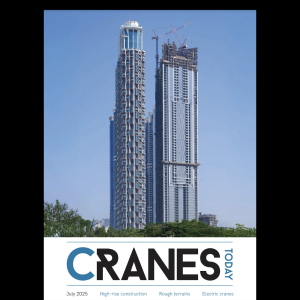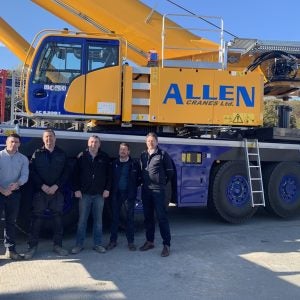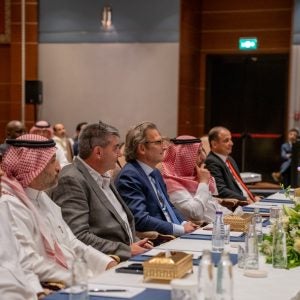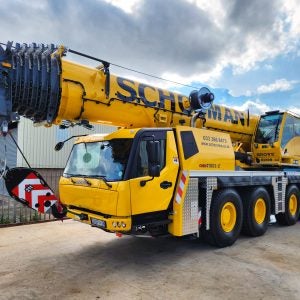Partek Corporation, parent company of loader crane manufacturer Hiab, has reported net sales up 25% to Euro 651m for the first three months of 2001. Excluding acquisitions, growth was 10%.
Orders worth Euro 624m were received in the quarter, compared with Euro 555m in the first quarter of 2000.
Operating profit was Euro 22.4m, a decline from last year’s Euro 30.2m for the equivalent period. The profit of the business areas before goodwill depreciation was Euro 31.1m.
Partek’s acquisition of Dutch NHC Holding BV, which includes container crane and straddle carrier producer Nelcon and the service company Groot-Hensen, was completed in March. The companies are consolidated in Container handling as of year 2001, as is the German sales and service company Klaus Eger GmbH, which was acquired at the end of 2000.
The company reported an increase in demand for container handling equipment, even though the North American market was weakening. Net sales in container handling rose 50% to Euro 185m, including Euro 13m of sales from. NHC Holding.
Demand for lifting equipment for vehicles had “levelled off at a good level” the company said.
Chief executive officer Christoffer Taxell said: “In Partek’s first quarter of the year the four business areas combined show improved operating profit compared to last year. Higher goodwill depreciation and financing cost, combined with the lack of non-recurring income, resulted in lower Group profits than in the first quarter last year. It is already evident that the extensive acquisitions of last year contribute to Partek’s development both through their profits and by strengthening Partek’s market position. The economic outlook is today by no means uniform.There are large differences between markets, even within markets. Thus the picture for Partek in North America, which stands for nearly a fifth of sales, is not at all solely gloomy. As for global economic development, it is at present a question of identifying where the downturn will hit the hardest, but also not to draw rash conclusions. For the present most of the world is still experiencing growth.”






